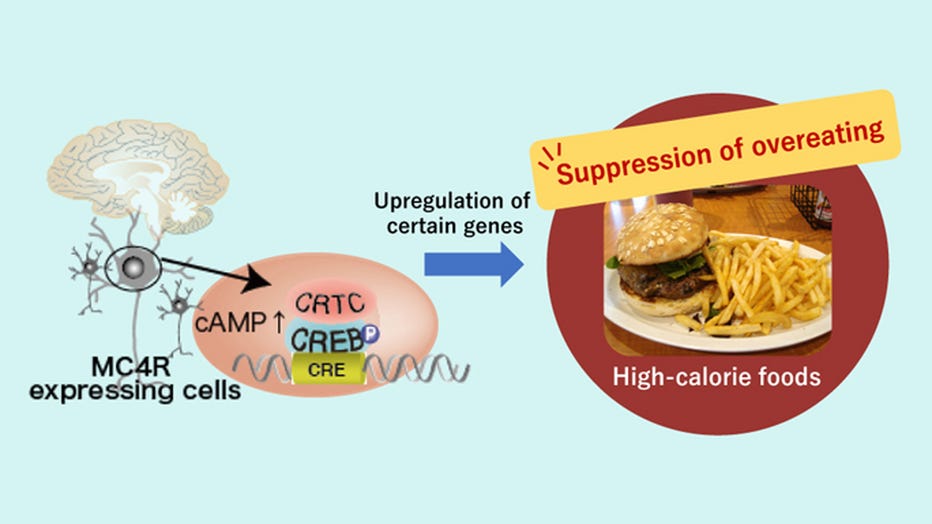Can’t stop at just one potato chip? Blame your genes, study says

FILE - A photo illustration of crisps on Feb. 16, 2018, in London, England. (Photo illustration by Dan Kitwood/Getty Images)
OSAKA, Japan - A recently-published study aims to understand better why eating just one potato chip is so difficult. Turns out, it may have to do partly with genetics.
High-calorie foods, or those high in fat, oil, and sugar, can be tasty but often cause overeating — which can lead to obesity and other health problems, experts say. But a study by researchers at Osaka Metropolitan University in Japan aimed to find out what, exactly, in the brain causes overeating.
RELATED: Foods we're leaving behind in 2022
A gene called CREB-Regulated Transcription Coactivator 1, or CRTC1, has been linked to obesity in humans, the study authors said. When a group of mice had CRTC1 deleted from their genes, they became obese — indicating that functioning CRTC1 suppresses obesity, the team said.
However, since CRTC1 is expressed in all neurons in the brain, the specific neurons responsible for suppressing obesity — and the mechanism by which the suppression works in those neurons — remained unknown.
The study team, led by Associate Professor Shigenobu Matsumura at Osaka Metropolitan University, focused on neurons expressing the melanocortin-4 receptor, or MC4R.
The researchers hypothesized that CRTC1 expression in MC4R-expressing neurons suppressed obesity because mutations in the MC4R gene are known to cause obesity. To test this, they used a strain of mice that expresses CRTC1 normally — except in MC4R-expressing neurons where it’s blocked — to examine the effect on obesity and diabetes.
When fed a standard diet, the mice without CRTC1 in MC4R-expressing neurons showed no changes in body weight, compared to control mice, the study authors found.
But when the CRTC1-deficient mice were given a high-fat diet, they overate and became significantly more obese than the control mice and developed diabetes.

Osaka Metropolitan University scientists have revealed that a particular gene, called CRTC1, mediates the obesity-suppressing effects of melanocortin-4 receptor (MC4R) by regulating appetite for fats and oils, high-fat diet metabolism, and blood suga
"This study has revealed the role that the CRTC1 gene plays in the brain, and part of the mechanism that stops us from overeating high-calorie, fatty and sugary foods," Matsumura, head of the study’s research team, said in a statement.
"We hope this will lead to a better understanding of what causes people to overeat," Matsumura added.
The study results were published on Nov. 9 in the FASEB Journal.
RELATED: Childhood BMI chart raised from 37 to 60 as severe obesity quadruples
This story was reported from Cincinnati.

